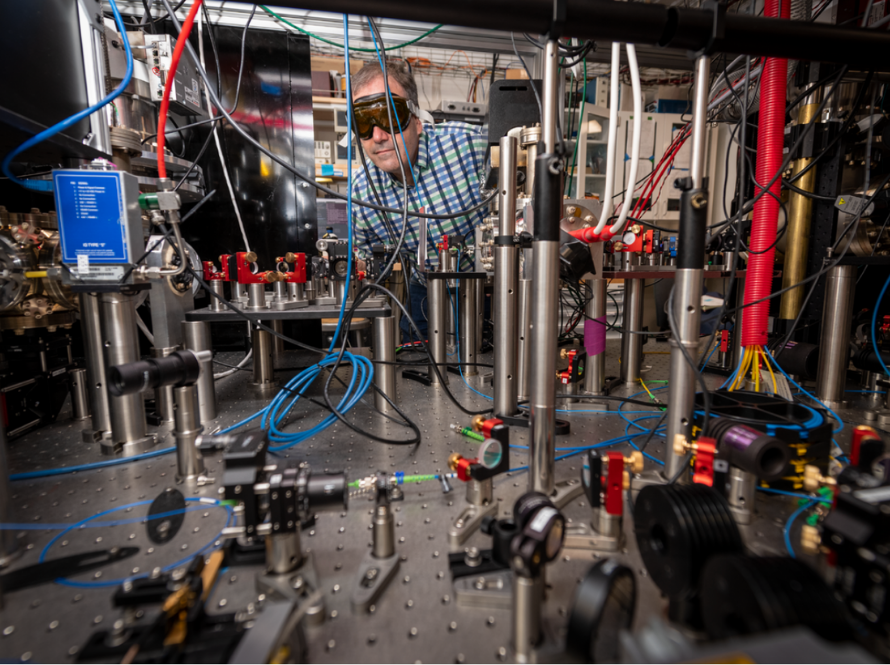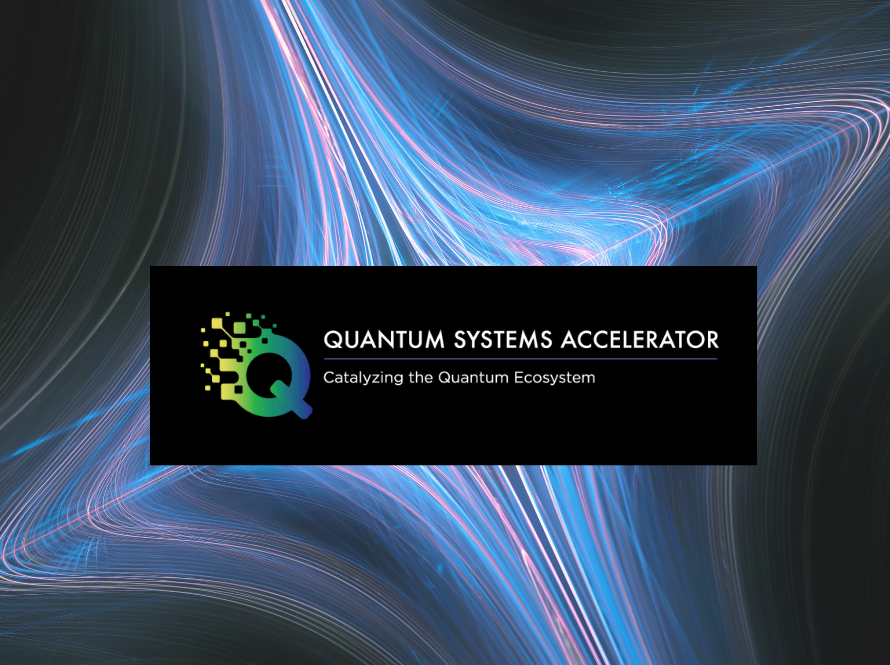QSA holds cross-cutting monthly Science Meetings for all center members via Zoom. The director, Bert de Jong, provides opening remarks and center-wide updates. Two early-career researchers highlight recent scientific advances. These meetings offer the opportunity to catch up on QSA’s latest accomplishments, provide feedback to presenters, enhance collaboration across areas, and share lessons learned.
The Meeting schedule can be found below. Zoom credentials are sent in advance.**
UPCOMING:
7 May 2024
- Arinjoy De (Duke/University of Maryland) “Programmable Trapped Ion Quantum Spin Simulator”
- Muqing Xu (Harvard) “A Programmable Fermi Hubbard Quantum Simulator”
Previous 2024 meetings:
9 April 2024
- Manuel Humberto Munoz Arias (Sherbrooke) “Low-depth Clifford circuits approximately solve MaxCut.”.You can find their preprint in the arXiv.
- Dr. Jeff Gertler (MIT Lincoln Laboratory) will update us on their work leading a major software project for Lincoln Laboratory, enabling qubit control infrastructure to scale up with chip size and to make it much more seamless to swap out qubit types, change connectivities, and add tunable couplers.
27 February
- Frankie Fung (Harvard) “Towards a Programmable Spin-Mechanics Platform with Dynamic Qubit Transport”
- Ilyoun Na (UC Berkeley) materials science update from LBNL’s Molecular Foundry.
16 January
- Jack Schrott (UC Berkeley) “Laser cooling and trapping of titanium atoms.”
- Anupam Mitra (UNM) “Macrostates versus microstates in the classical simulation of critical phenomena in the quench dynamics of 1D Ising models” Preprint available in the arXiv.
**Please contact Eileen Dawson (QSA Associate Director of Operations) if you have not received the meeting Zoom information.

Founded in 1931 on the belief that the biggest scientific challenges are best addressed by teams, Lawrence Berkeley National Laboratory and its scientists have been recognized with 16 Nobel Prizes. Today, Berkeley Lab researchers develop sustainable energy and environmental solutions, create useful new materials, advance the frontiers of computing, and probe the mysteries of life, matter, and the universe. Scientists from around the world rely on the Lab’s facilities for their own discovery science. Berkeley Lab is a multiprogram national laboratory, managed by the University of California for the U.S. Department of Energy’s Office of Science. DOE’s Office of Science is the single largest supporter of basic research in the physical sciences in the United States, and is working to address some of the most pressing challenges of our time. For more information, please visit energy.gov/science.
Sandia National Laboratories is a multimission laboratory operated by National Technology and Engineering Solutions of Sandia LLC, a wholly owned subsidiary of Honeywell International Inc., for the U.S. Department of Energy’s National Nuclear Security Administration. Sandia Labs has major research and development responsibilities in nuclear deterrence, global security, defense, energy technologies and economic competitiveness, with main facilities in Albuquerque, New Mexico, and Livermore, California.
The Quantum Systems Accelerator (QSA) is one of the five National Quantum Information Science Research Centers funded by the U.S. Department of Energy Office of Science. Led by Lawrence Berkeley National Laboratory (Berkeley Lab) and with Sandia National Laboratories as lead partner, QSA will catalyze national leadership in quantum information science to co-design the algorithms, quantum devices, and engineering solutions needed to deliver certified quantum advantage in scientific applications. QSA brings together dozens of scientists who are pioneers of many of today’s unique quantum engineering and fabrication capabilities. In addition to industry and academic partners across the world, 15 institutions are part of QSA: Lawrence Berkeley National Laboratory, Sandia National Laboratories, University of Colorado at Boulder, MIT Lincoln Laboratory, Caltech, Duke University, Harvard University, Massachusetts Institute of Technology, Tufts University, UC Berkeley, University of Maryland, University of New Mexico, University of Southern California, UT Austin, and Canada’s Université de Sherbrooke. For more information, please visit https://quantumsystemsaccelerator.org/
